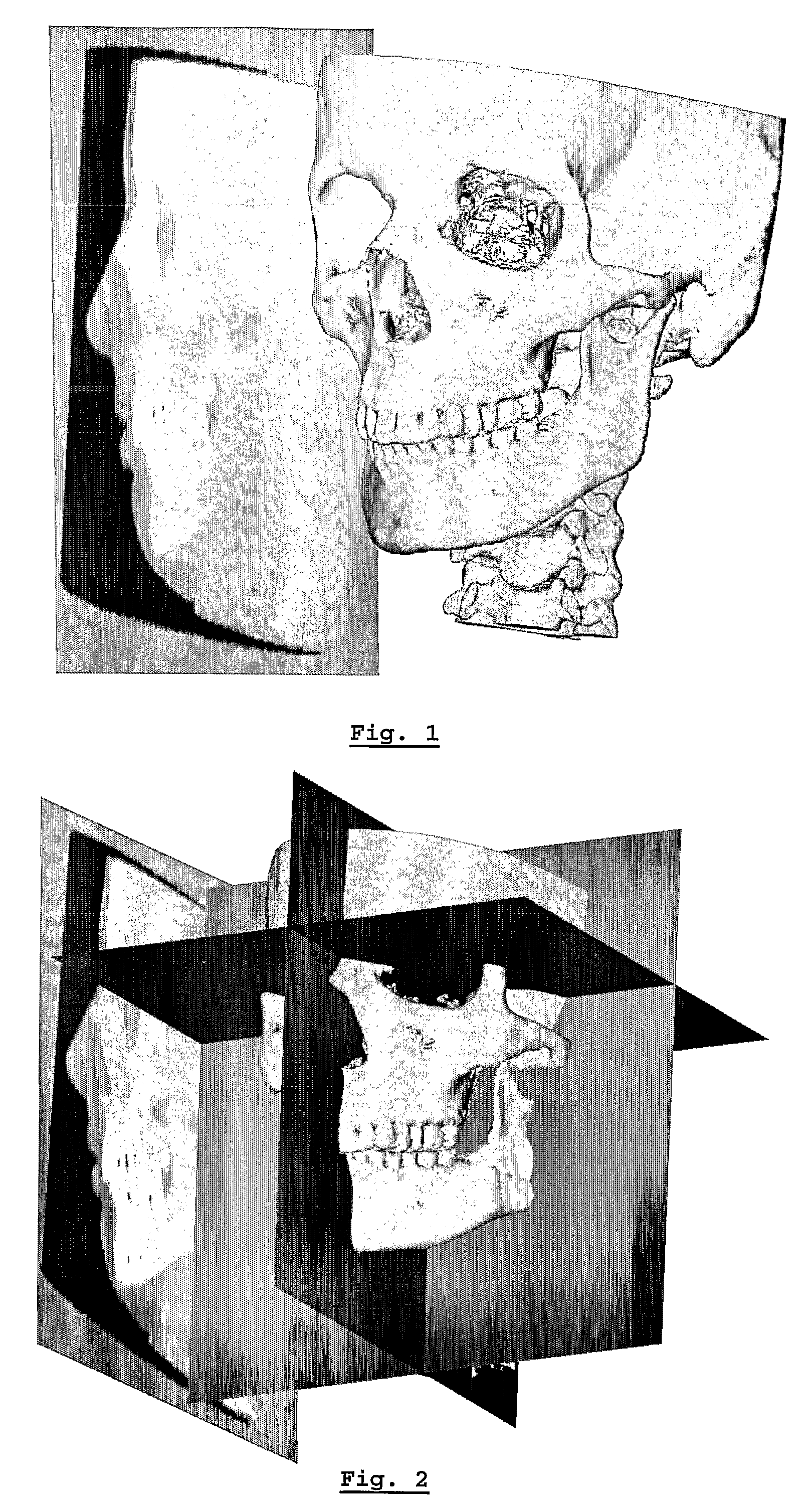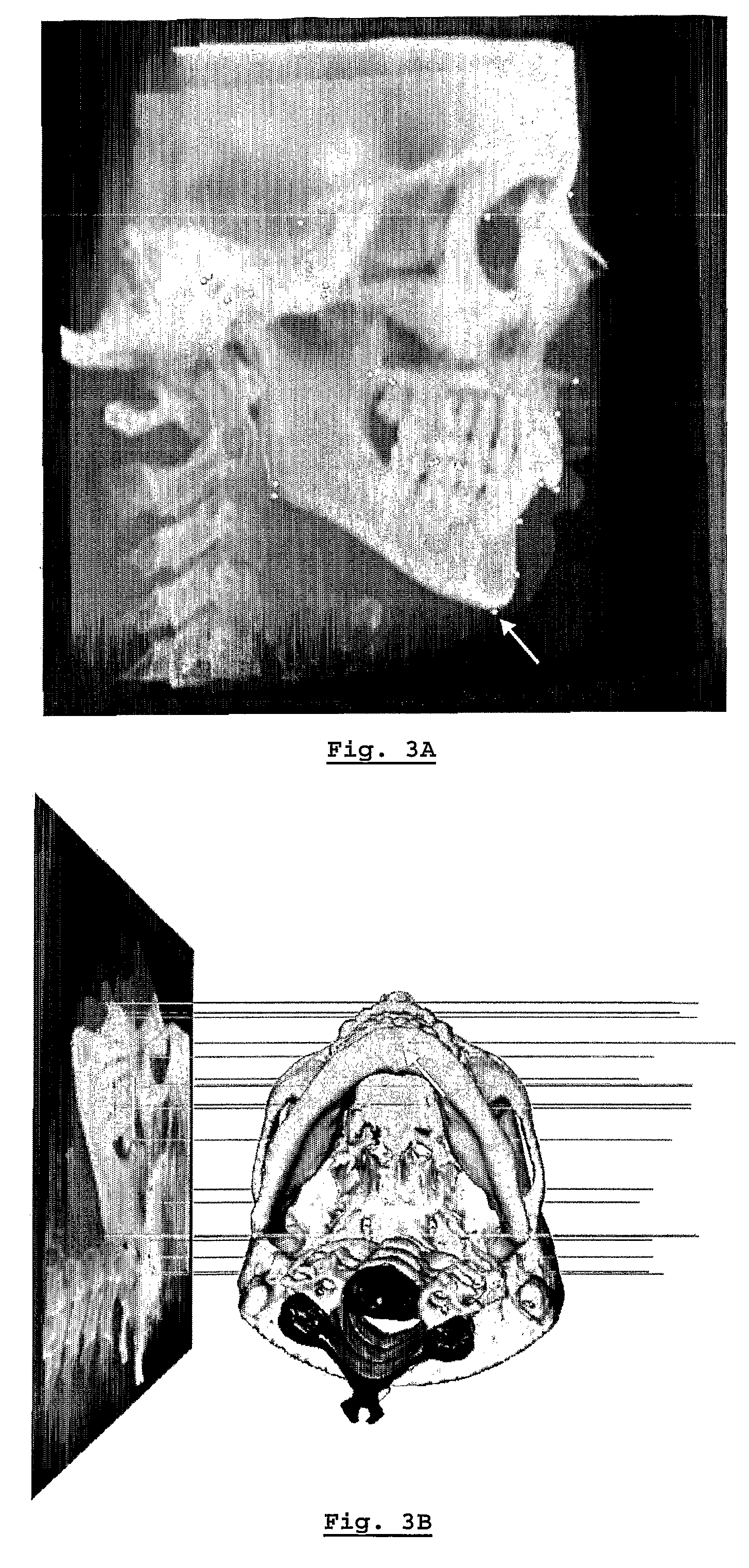Method for deriving a treatment plan for orthognatic surgery and devices therefor
a treatment plan and orthognatic technology, applied in the field of orthognatic surgery treatment plan derivation and the field of orthognatic surgery treatment plan, can solve the problems of inability to plot on a three-dimensional view the exact position of teeth to obtain the bite, and the currently available 3d surface representation algorithm does not provide a suitable framework comprising anatomically relevant references
- Summary
- Abstract
- Description
- Claims
- Application Information
AI Technical Summary
Benefits of technology
Problems solved by technology
Method used
Image
Examples
Embodiment Construction
[0051]In order to perform an adequate 3D cephalometric analysis of bone tissue and / or soft tissues, the ability to indicate the relevant points on the 3D structures alone does not suffice. Points required for adequate 3D cephalometric tracing that are not well defined on the 3D structure are available on a 2D representation and vice-versa. The present invention describes a computerised system that solves this problem.
[0052]The present invention provides a method to redefine the framework of a 3D surface representation into an anatomically relevant framework. The anatomically relevant framework allows a clinician to perform an accurate cephalometric and / or anthropometric analysis in an intuitive manner. Moreover, a 3D surface representation comprising an anatomically relevant framework has the advantage that it allows the virtual repositioning of bone fragments in relation to anatomically relevant landmarks, making it particularly suited for the planning of surgical interventions. Th...
PUM
 Login to View More
Login to View More Abstract
Description
Claims
Application Information
 Login to View More
Login to View More - R&D
- Intellectual Property
- Life Sciences
- Materials
- Tech Scout
- Unparalleled Data Quality
- Higher Quality Content
- 60% Fewer Hallucinations
Browse by: Latest US Patents, China's latest patents, Technical Efficacy Thesaurus, Application Domain, Technology Topic, Popular Technical Reports.
© 2025 PatSnap. All rights reserved.Legal|Privacy policy|Modern Slavery Act Transparency Statement|Sitemap|About US| Contact US: help@patsnap.com



